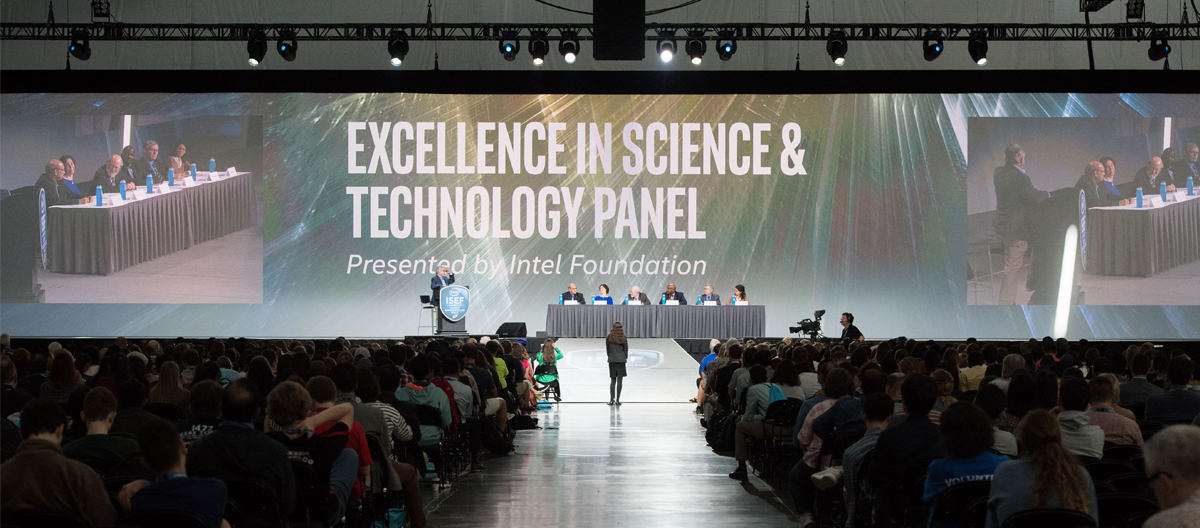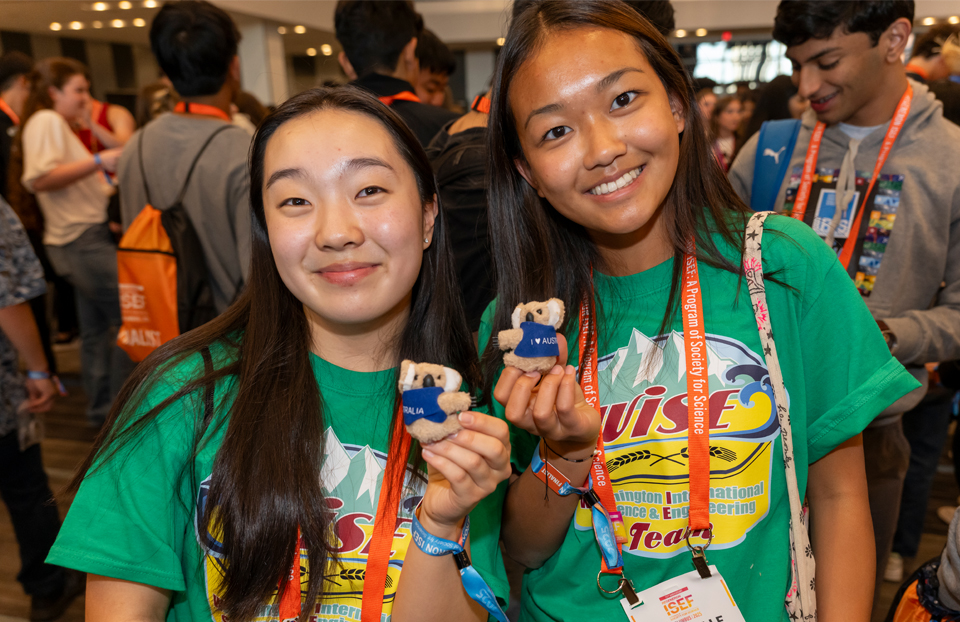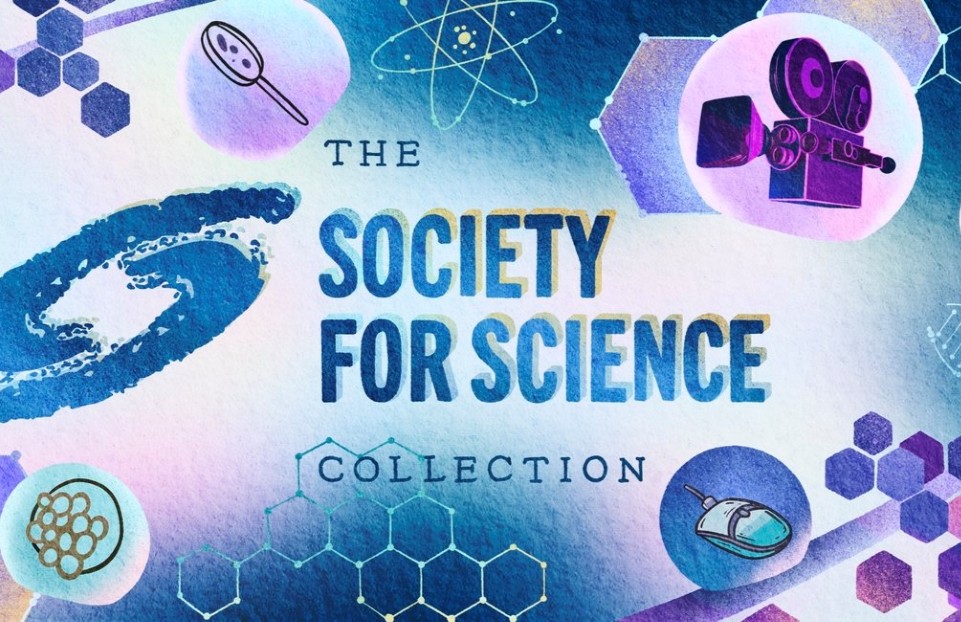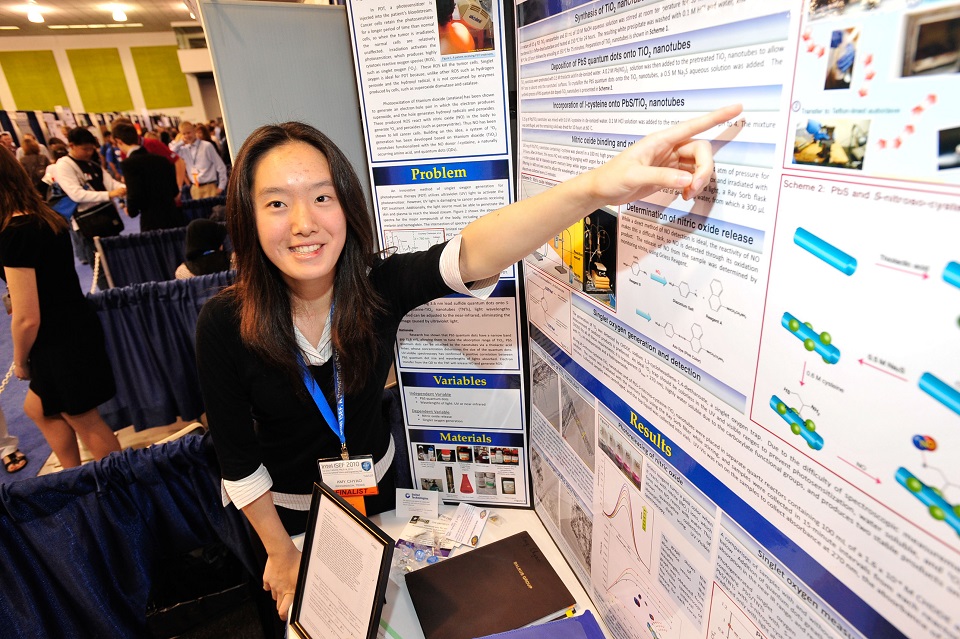World-class scientists to Intel ISEF finalists: pursue your passion

It’s rare that three Nobel Prize Winners, two MacArthur fellows, and a recipient of the National Medal of Technology and Innovation are all sitting in the same room. But at the 2018 Intel International Science and Engineering Fair (ISEF), finalists were treated to a symposia including panelists holding these very accolades.
At the “Excellence in Science and Technology Panel,” presented by the Intel Foundation, Martin Chalfie, Elissa Hallem, H. Robert Horvitz, Cato Laurencin, W.E. Moerner, and Dianne Newman answered finalists’ questions about their distinguished careers. NPR correspondent and Society for Science & the Public Trustee, Joe Palca, moderated the panel, and Pia Wilson-Body, Executive Director of Intel Foundation and Director, Corporate Affairs Group – Greater Americas, Intel Corporation, gave welcoming remarks.
Each of the panelists have led exciting careers in science and technology and they all had insightful advice for this year’s finalists.
This year’s panel included:
Martin Chalfie, professor at Columbia University and a member of the Society for Science & the Public Board of Trustees, won the 2008 Nobel Prize in Chemistry for discovering and developing the green fluorescent protein, GFP.
Elissa Hallem, a neuroscientist and associate professor in the Department of Microbiology, Immunology, and Molecular Genetics at the University of California, Los Angeles, studies the physiology and behavioral consequences of odor detection. She was named a MacArthur Fellow in 2012.
H. Robert Horvitz, Society for Science & the Public Board of Trustees Chair, received the 2002 Nobel Prize in Physiology or Medicine. He is the David H. Koch Professor of Biology at the Massachusetts Institute of Technology (MIT). His lab researches molecular genetic pathways as well as programmed cell death.
Dr. Cato Laurencin, the Endowed Chair Professor in the Department of Orthopaedic Surgery at the University of Connecticut, works on repairing ligaments and musculoskeletal tissues. In 2016, he was awarded the National Medal of Technology and Innovation by President Barack Obama.
W. E. Moerner, the Harry S. Mosher Professor of Chemistry and Professor, by courtesy, of Applied Physics at Stanford University, received the 2014 Nobel Prize in Chemistry. He is a physical chemist who works on biophysics and imaging of single molecules using spectroscopy.
Dianne Newman, Gordon M. Binder/Amgen Professor of Biology and Geobiology at the California Institute of Technology, is a 2016 MacArthur Fellow and a 1987 and 1988 Intel ISEF finalist. She investigates the role of bacteria in shaping the historical evolution of the Earth and its biomedical implications in sustaining modern life.
Questions from the finalists ranged from inquiries about the current state of STEM to hypothetical situations.
“What scientific question would you choose to investigate if you knew you couldn’t fail?” one student asked.
“If I knew I could not fail, I’d be doing what I’m doing right now,” Dr. Laurencin Cato said.
Others echoed a similar sentiment.
“The beauty of science is there is no right answer, just the discovery of what’s true,” Dianne Newman said.
“In science, always be prepared for surprises,” said W. E. Moerner.
Another finalist asked the female panelists about their experience as a woman in STEM.
“I think there is still bias. A lot of it is unconscious. I think that exists in all fields,” Elissa Hallem said.
Dianne encouraged anyone with a passion for science to go for it.
One student asked the panelists what advice they had for students planning to pursue STEM careers.
H. Robert Horvitz told the finalists that it’s okay to change fields or directions within science research, noting that he didn’t take a class in biology, his current field, until he was a senior in college.
“Pursue your passion,” he said. “Don’t do it because someone told you to do it, but because you want to.”
These leading scientists advised and underscored that the STEM field is full of possibilities.
“There is so much opportunity, so many new things. We are right now in the most exciting time to be a scientist,” Martin Chalfie said.


